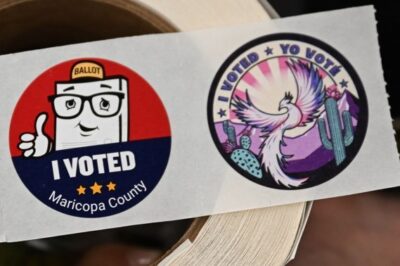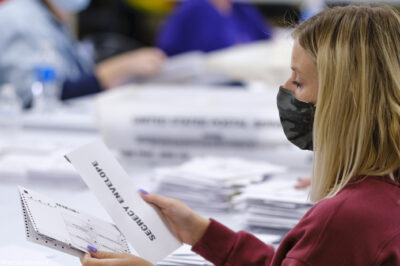Bill Not Perfect, But Big Step in Right Direction
January 16, 2014
FOR IMMEDIATE RELEASE
CONTACT: 212-549-2666, media@aclu.org
WASHINGTON – At a press conference today, a bipartisan group of legislators – including Reps. James Sensenbrenner (R-Wis.), John Conyers (D-Mich.), and Sen. Patrick Leahy (D-Vt.) – will announce the introduction of The Voting Rights Amendment Act of 2014 in Congress.
The bill is in response to last year’s Supreme Court ruling in Shelby County v. Holder that invalidated a critical part of the Voting Rights Act of 1965: the coverage formula that determined which states and political subdivisions were subject to the law’s preclearance requirement. Because it only struck down the coverage formula and not the preclearance requirement itself, the Court left it up to Congress to devise a new formula and other mechanisms that continues to protect the rights of minority voters.
"While not perfect, today’s bill successfully answers Chief Justice Roberts’ invitation to Congress in Shelby to modernize the Voting Rights Act," said Deborah J. Vagins, ACLU senior legislative counsel. "The bill includes commonsense updates to a law that has protected the fundamental right to vote for American citizens for nearly 50 years. While it does not fix everything that was lost in Shelby, we are pleased to see a bipartisan bill that contains a set of protections that are flexible, forward-looking, and written to capture recent discrimination and stop discriminatory changes before elections take place. We will continue to work for improvements in the bill and urge Congress to pass the bill swiftly. Congress must do all in its power to ensure that Americans are treated fairly at the ballot box."
New important provisions in the bill include a rolling preclearance formula that will cover jurisdictions with recent, egregious voting records, requiring voting changes be preapproved; an expanded judicial bail-in provision; an enhanced ability for plaintiffs to obtain preliminary injunctive relief for some voting changes; and requirements for jurisdictions to provide public notice of proposed voting changes.
A problematic provision in the bill we will seek to have improved treats violations arising from voter ID laws somewhat less seriously from other voting rights violations. The bill also fails to include more robust protections for minority and language minority citizens who are subject to highly-suspect voting changes. This should be addressed as the legislative process moves forward.



